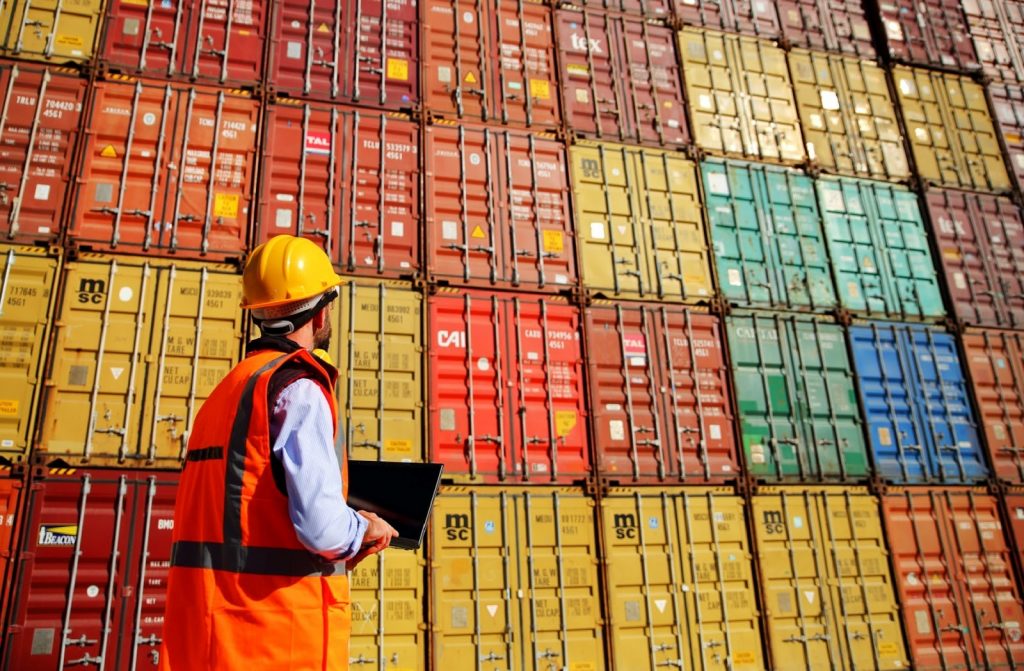What is freight forwarding?
For a freight service to work, a selection of factors needs to be considered to get the shipment to its destination. Any freight service has a place of origin and destination, but the method of transport and any applicable fees and requirements along the way all need to be catered for. This is where a freight forwarder steps in.
The role of a freight forwarder – or freight forwarding agent – is to operate as an intermediary between the person who requires the shipment and the relevant transportation services such as lorry, ship, plane or train. By doing this, they help to take away the stress involved in moving a shipment from point A to point B from the customer.
A freight forwarder will do this by working with every freight service provider to negotiate a sensible overall price for the person or company that ordered the shipment. This will take into account the speed, reliability and cost of the shipment, as well as any fees and legal matters that may arise.
How freight forwarding works
The freight forwarding process is made up of a number of stages:
- when a freight forwarder has agreed to work on your behalf, they will move the shipment to a warehouse that is owned or leased by the forwarder’s firm. This stage is known as export haulage, and the location of the warehouse is often based on the chosen method of transportation
- during the process of storing the shipment at the warehouse, the forwarder will check over the goods to ensure that none of it is damaged or missing
- in preparation for the shipment to be moved, the forwarder will submit the necessary documents to custom agents if the shipment is being transported to a different country. However, some freight forwarders will request that you do this instead, and as these documents need to be signed by a customs agent before the shipment can be moved, it may take some time for approval
- after the shipment has finished the transportation process, it will be received by custom agents. When the paperwork is completed and approved, all documentation is forwarded to the destination as proof of approval
- it is at this point that the shipment is held by a warehouse that’s owned or leased by the forwarder and transported to the destination. This is known as import haulage and is sometimes passed on to a third party, especially if the freight forwarder is based in the country that the shipment came from.
What is a freight forwarding business?
Although a freight forwarding agent may be operating on a freelance basis, there are companies that specialise in providing this service. Freight forwarders are experts in the process of getting large shipments moved across countries and everything that it involves, but there are some benefits to using a freight forwarding company.
For instance, a freight forwarding company will usually have established infrastructure, such as owning a warehouse and the required equipment for handling shipments. They are also more likely to have solid connections to freight service providers and other necessary companies.

How do freight forwarders make money?
During each shipment from origin to destination, a freight forwarder may charge you transportation costs, charges for moving, palleting and packing products, storage fees, the cost of documentation for importing and exporting, insurance fees, surcharges, admin and handling fees, and charges that are specific to the product, such as the cost of using a crane for larger products or the licences required for moving hazardous products.
Profit made from freight forwarding is primarily based on the overall price for completing all of these duties. Although it’s regarded as being more cost-effective to use a freight forwarder than to deal with shipping yourself, it may technically be cheaper to carry out all of these duties individually. However, as freight forwarders often hold relationships with the necessary contacts that you may not, it’s preferable for many companies to use a freight forwarder instead.
As well as maintaining useful working relationships, freight forwarders will also typically own or lease their own warehouses and possess all of the required equipment for handling and transporting goods in high quantities. Due to this, paying a fee for them to carry out this process for you is likely to be cheaper than paying for each service individually, renting the necessary equipment and space in a warehouse.
